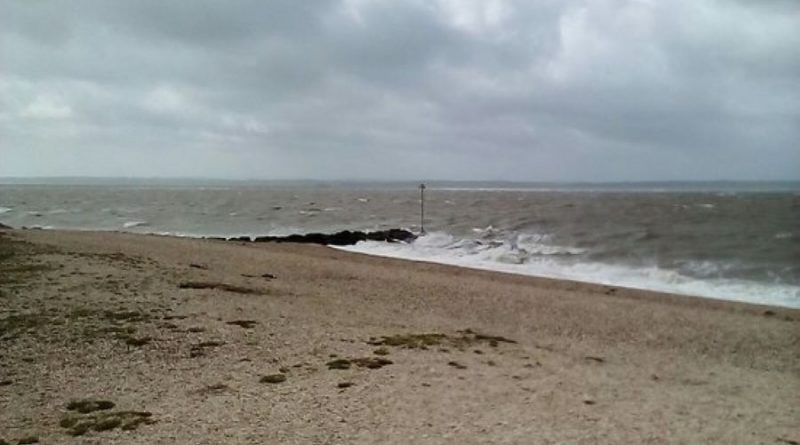BBC reveals Southern failure behind Lee’s polluted seawater
According to the broadcaster’s website this morning – Monday, August 22 – analysed by the Liberal Democrats found that many monitoring devices had either not been installed or do not work “90% of the time”.
See English beach sewage dumps not monitored properly, data shows – BBC News
The Liberal Democrats have said the data showed a quarter of sewage discharges went unmonitored last year as a result of a lack of monitors or faults.
Water firms have insisted they are committed to tackling the issue.
Warnings
Pollution warnings were put in place across more than 40 beaches and swimming spots in England and Wales after heavy rain overwhelmed sewer systems.
And particular concern was raised over Lee-on-the-Solent and a handful of other beaches that have bathing water status where the Lib Dems said some Event Duration Monitoring devices were not installed at all.
Bathing water status is given to locations where ministers expect “a large number of people to bathe” based on past trends.
Raw sewage was pumped into rivers and coasts around 375,000 times in 2021, compared with 25,000 times the year before, according to the Environment Agency.
The agency said it increased the number of combined sewer overflows monitored across the network from 800 in 2016 to more than 12,000 in 2020. All 15,000 will have them by the end of 2023, it added.
The government has previously said it wanted to reduce discharges into bathing waters by 70 percent by 2035, and eliminate 160,000 incidents of sewage overflows by 2040.
Water Minister Steve Double was quoted as saying: “We are the first government to take action to tackle sewage overflows. Work on tackling sewage overflows continues at pace.”
However Stanley Johnson, the prime minister’s father, blamed his son’s administration for the sewage problem, saying it should have been pressed harder.
Linking the problem to Brexit, he said Britain’s beaches got a “clean up” after joining the European Union in 1973. Without the “EU push”, he added, the UK faces a “very dangerous and difficult situation.”
Dr Imogen Napper, a postdoctoral researcher in marine pollution at the University of Plymouth, said for such goals to be met more “investment and accountability is required from water companies to ensure this environmental disaster is not repeated”.
“The protection of our environment, and the community that enjoy it, is paramount,” she told BBC News, adding it was “environmental vandalism” for raw sewage to “enter our environment due to [companies] cutting corners and a lack of appropriate infrastructure”.
When all monitors were considered – not just those in spots with bathing status – the Lib Dem analysis found that the water company with the worst record was Anglian Water.
Both Anglian Water and Southern Water told BBC News work had already been done to improve the issue.
Monitors
At Southern, a spokesman said the company had monitors on “87.8 percent of our storm overflows, giving us the ability to report pollutions more accurately”.
He added: “This covers 959 of our 974 overflows – one of the highest levels in the industry.
“We have committed to £145 million of investment to drive down pollutions by 2025.”
A spokesman for water regulator Ofwat said it was currently investigating “all wastewater companies” in England and Wales due to “concerns” over how they “manage their treatment works”.
Cases are currently open in relation to six of them, he told BBC News, adding: “Where we find issues, we will act.”
Last year a total of 256 Conservative MPs voted with the government to reject an attempt by the House of Lords to bolster the Environment Bill.
Peers wanted to force water companies and the government to demonstrate progressive reductions in discharges of untreated sewage and make it standard for them to “take all reasonable steps” to avoid using combined sewer overflows.
Some MPs said the proposed amendment was unnecessary. Others argued that dumping sewage into open water was better than it coming into people’s homes or businesses.
PICTURED: No swimmers in sight along the polluted shoreline at Lee-on-the-Solent after Southern Water’s latest discharge of raw sewage.



